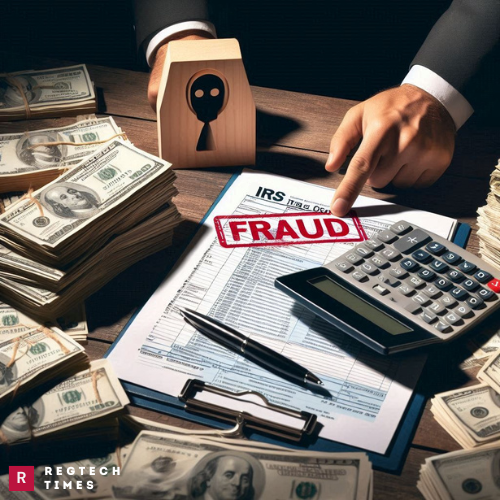A woman from Nevada, Candies Goode-McCoy, has admitted to a shocking scheme in which she attempted to cheat the U.S. government out of nearly $100 million. She pleaded guilty in court to working with others to file thousands of false tax returns in order to claim COVID-19 relief funds meant for struggling businesses.
Between June 2022 and September 2023, McCoy filed around 1,227 fraudulent tax returns for herself and other businesses. These false claims were based on two government relief programs—the Employee Retention Credit (ERC) and the Paid Sick and Family Leave Credit. These programs were created during the COVID-19 pandemic to help small businesses survive financial hardship.
McCoy’s fraudulent claims sought over $98 million in tax refunds, and shockingly, the IRS unknowingly paid out $33 million before catching on. Out of this, McCoy personally received more than $1.3 million in fraudulent funds and was paid an additional $800,000 by those she helped scam the system.
How the Fraud Worked
During the COVID-19 pandemic, the government set up special financial relief programs to help businesses. The ERC was designed to allow small businesses to reduce their employment tax burden, while the Paid Sick and Family Leave Credit reimbursed businesses for wages paid to employees who had to take leave due to COVID-19.
Real Estate Executive Kevin Gao Charged in $30 Million Bank Fraud
However, McCoy and her co-conspirators took advantage of these programs in an illegal way. She knowingly filed fake tax returns, falsely claiming that businesses were eligible for large refunds. In reality, neither McCoy nor the businesses she filed for were entitled to these credits.
Instead of using the money for any legitimate business purposes, McCoy spent it on herself. She splurged on luxury cars, expensive vacations, gambling at casinos, and other lavish purchases. The fraud was extensive, and it took time for authorities to track down what was happening.
Legal Consequences for McCoy
Now that she has pleaded guilty, McCoy is facing serious consequences. She is scheduled to be sentenced on February 23, 2026, and could face up to 10 years in federal prison. In addition to jail time, she will be required to pay back the stolen money, face monetary penalties, and serve a period of supervised release after her time in prison.
The case was investigated by the IRS Criminal Investigation unit and the Treasury Inspector General for Tax Administration. Acting Deputy Assistant Attorney General Karen E. Kelly and Acting U.S. Attorney Sue Fahami for the District of Nevada announced the guilty plea. The case is being prosecuted by Trial Attorney John C. Gerardi and Assistant U.S. Attorney Richard Anthony Lopez.
This case serves as a strong reminder that fraud and misuse of government funds are taken seriously. Authorities continue to investigate and prosecute individuals who illegally take advantage of financial relief programs intended to help those in need.


